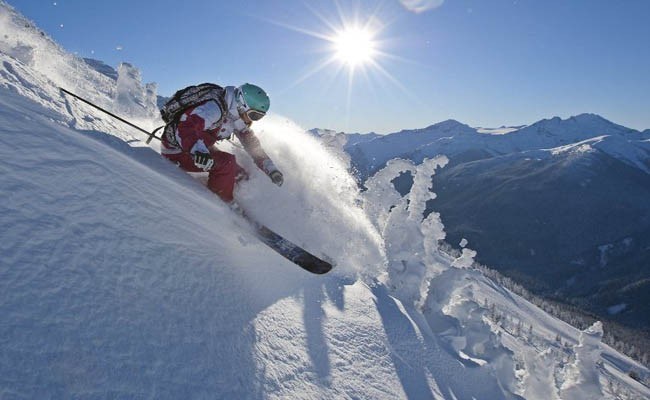People from the North Shore and the rest of the Lower Mainland who want to ski at Whistler should come for day trips only, and not stay for a weekend of socializing.
That’s the advice from the province’s medical health officer Dr. Bonnie Henry, after health officials revealed there have been 547 COVID-19 cases in the resort community in the past month.
“More than 547 cases is too many,” said Henry on Friday.
On recommendations to “stay local” for skiing, “for Whistler that means day trips only,” said Henry. “Now is not the time to go up and party.”
Cases of the virus have surged this month in the resort community, which is a frequent destination for Lower Mainland skiers.
The majority of those cases continue to be people in their 20s and 30s who live, work and socialize together, said Health Minister Adrian Dix. Almost all transmissions of the virus have been within households and social settings, he added. So far only two people from Whistler who contracted the virus have required brief hospitalizations.
The cases are not linked to actual skiing on the mountain, said Henry. “It’s outdoors. It’s low risk.”
Several Whistler bars and restaurants have been subjects of public exposure alerts in the past month, however.
Dix said environmental health officers will be making extra inspections in Whistler to make sure businesses are complying with COVID-19 protocols, because social interactions remain a key source of transmission.
“Significant enforcement actions are taking place at Whistler,” said Dix, adding the Ministry of Tourism will be bringing in new targeted measures next week in Whistler to limit the spread of the virus.
“We want to take those actions that focus in on the source of transmission,” he said.
According to statistics reported Friday, there have been 1,111 cases of COVID in Whistler since the start of the pandemic.
People in their 20s and 30s are currently the biggest driver of COVID-19 cases throughout the province, through both social gatherings and workplace transmissions.
And while young adults are unlikely to become seriously ill, anytime more transmissions are occurring it increases the risk of the virus mutating, said Henry.
Henry revealed Friday that there have been 28 cases of new COVID-19 “variants” detected in B.C. so far, including the so-called U.K variant as well as the South African variant.
Those variants have been shown to transmit much more readily, and “some of these new variants have been associated with an increased severity of illness,” said Henry. “That is very worrisome.”
If one of the variants starts to take off and spread rapidly in the community “all bets are off” in terms of restrictions being loosened, she warned.



